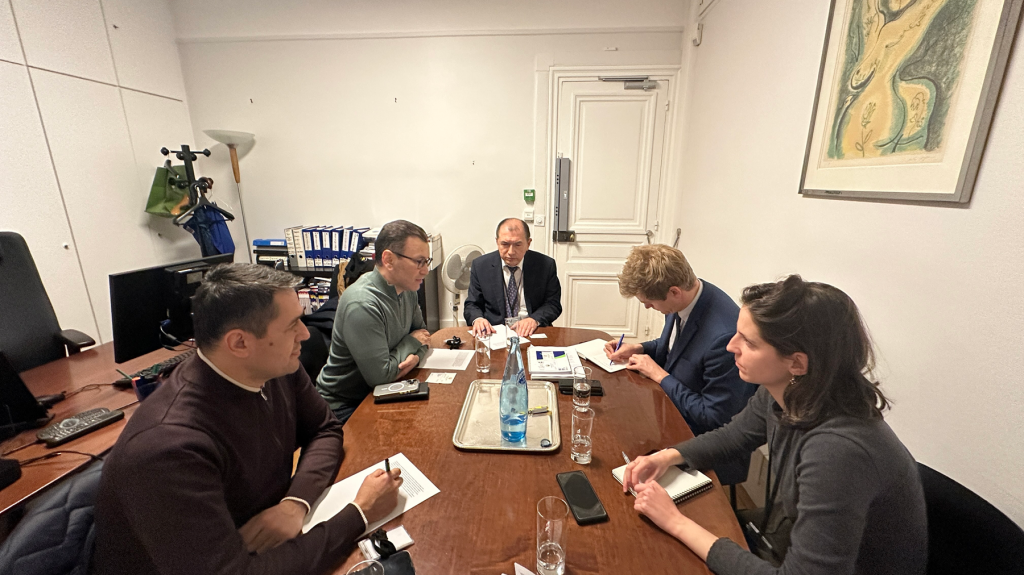
Paris hosted a meeting between the leaders of the International Institute for Central Asia (IICA) and the Centre for Analysis, Planning and Strategy (CAPS) at the Ministry for Europe and Foreign Affairs of France.
At the meeting, the current state of bilateral relations between Uzbekistan and France, the cooperation format “Central Asia + European Union”, and regional processes were discussed.
In particular, IICA Director, Mr. Vakhabov, noted the importance of summits in the “Central Asia Plus” format, strengthening foreign economic relations and political cooperation with the world’s leading countries.
In this context, the need for holding forums of Central Asia and the EU analytical centers to develop practical proposals and initiatives that will contribute to the substantive content of summits at various levels was emphasized.
In turn, the French side expressed its readiness to promote the development of such ties by selecting suitable analytical centers engaged in studying the Central Asian region. This opens new opportunities for deepening relations, exchanging knowledge and experience, and strengthening interregional cooperation.
Following the meeting, the parties agreed to establish contacts, which will contribute to further strengthening cooperation.
G. Khonnazarov, UzA








